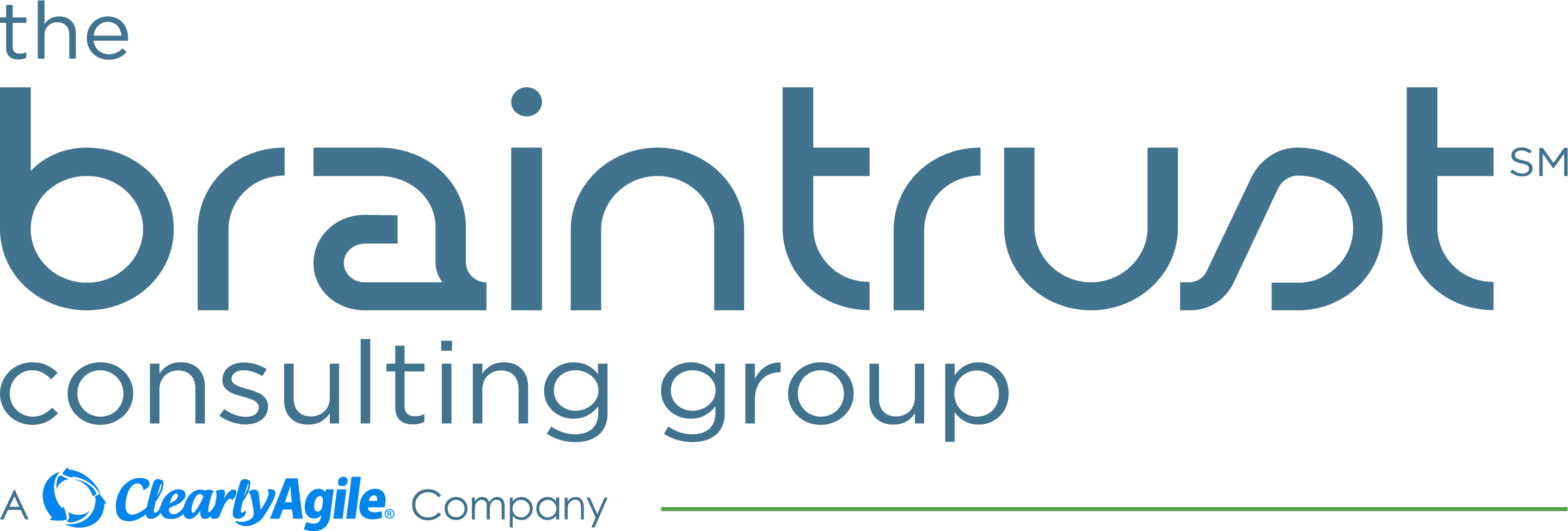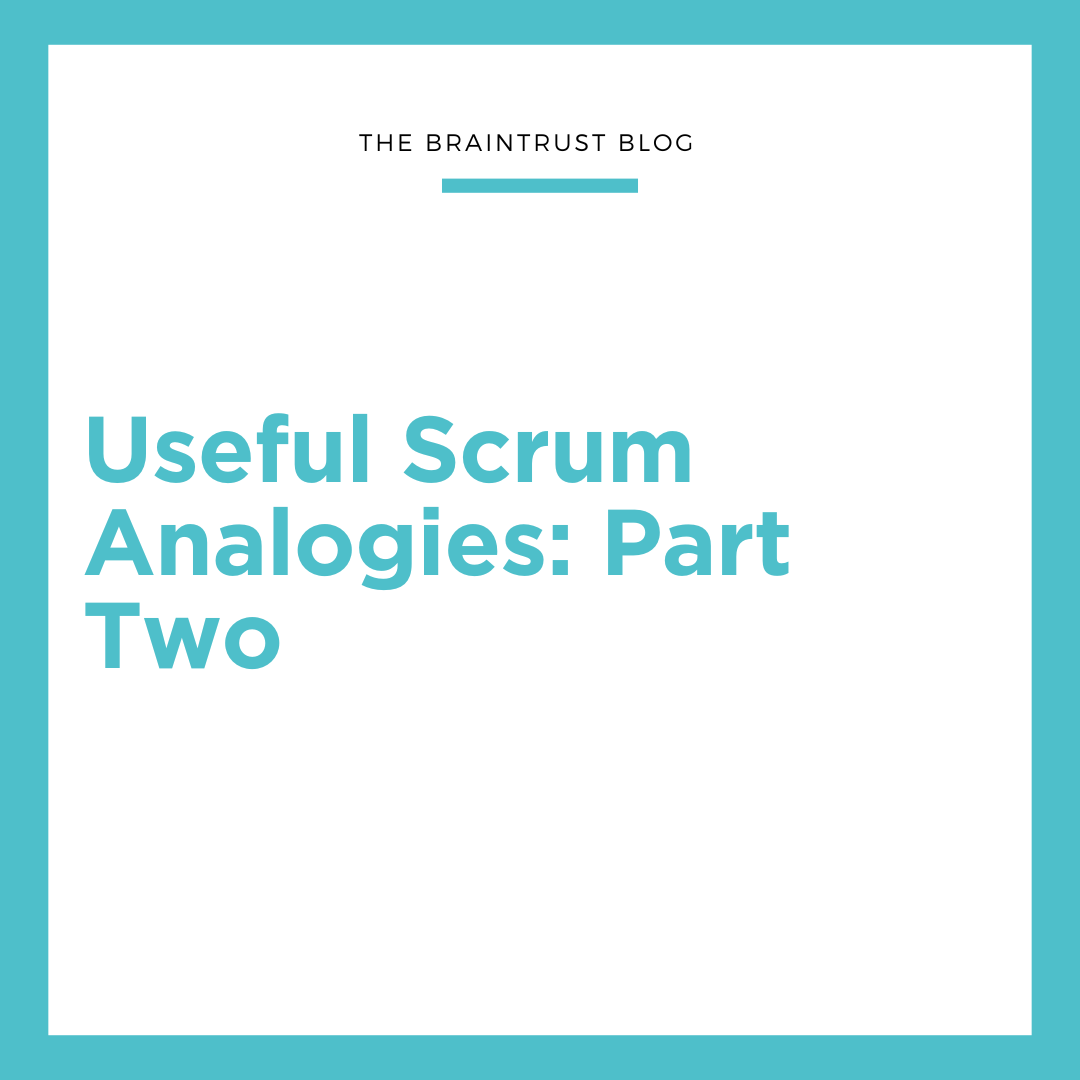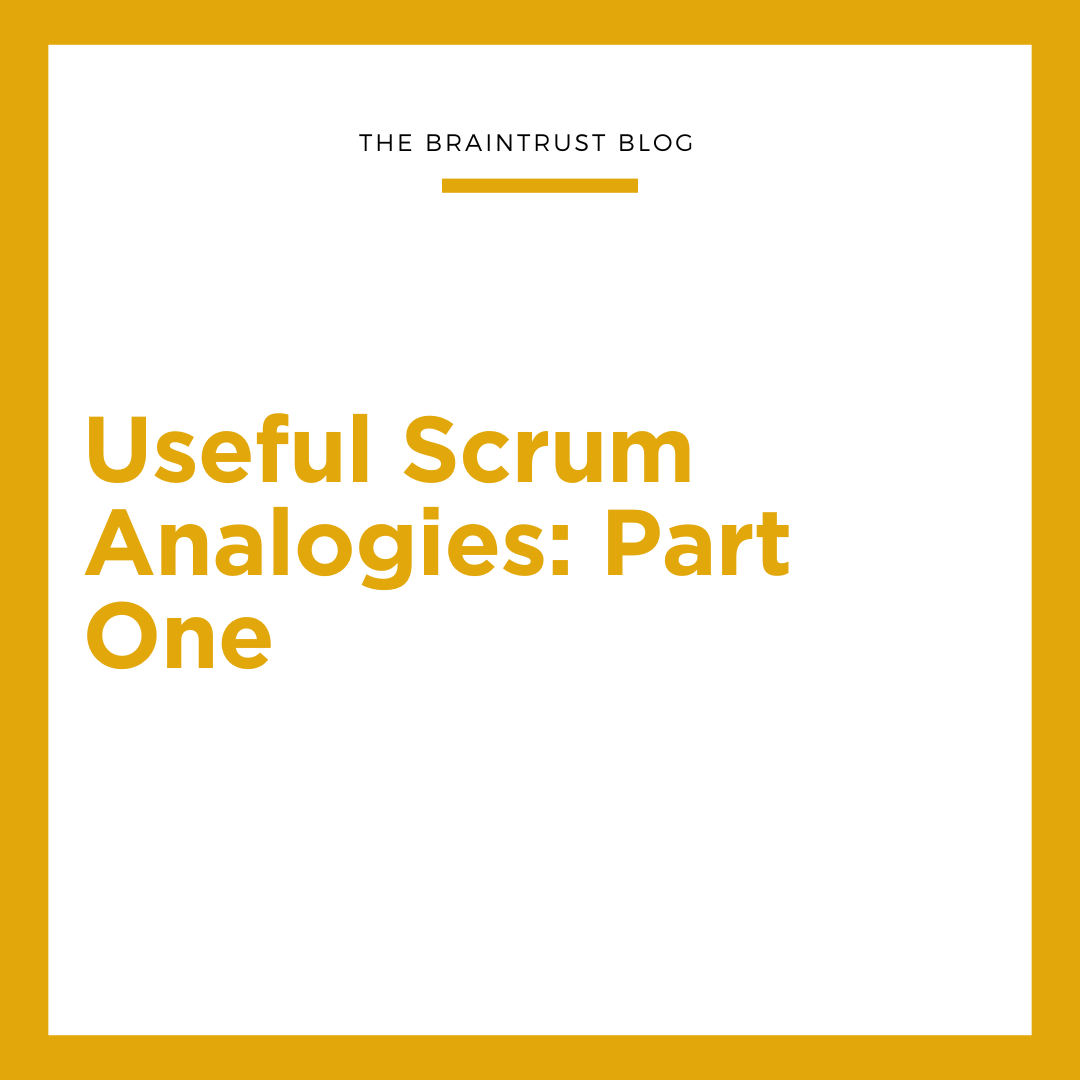The following article has been submitted by Jonathan Rabon, who is working with Braintrust Consulting Group to develop an entirely new process that strengthens the Scrum approach with psychology. Here’s part 1 of 3 of what he as to say:
I’m truly excited as I write this. It’s time to start writing my proposal. The research has been collected, the idea is coming to fruition, and now it’s time to explore a new niche where Scrum and Psychology can collaborate in a powerful way. Let me back up and tell you how I got to this point.
It all started on the evening of 6/26/2011 when having dinner with my wife and my brother at a restaurant in Colorado Springs, Colorado. Brian M. Rabon (Scrum Certified Trainer, a.k.a. my older brother) invited me to come to day one of his Certified ScrumMaster (CSM) courses in Broomfield, Colorado. I arrived not knowing what to expect. Once I was introduced to the class with my Doctorate in Clinical Psychology I thought the attendees would be intimidated or confused as to what I was doing there. It was not what I expected, they asked me questions and they thought it was totally natural for someone with a background in human behavior to be attending a specialized, project management training. I helped out in the training and I learned a whole lot.
I took detailed notes during the training and I remember writing, “Psychological testing for teambuilding.” With all the emphasis on small teams at the CSM training I thought that the teams need to understand the way that each other process information and their style of communication. The Scrum framework does a great job of minimizing the problems associated with operating in a team environment and all the biases that people bring to groups. It falls short in the understanding of the individual and what that individual brings to the team dynamic. That’s where psychology comes in.
I pitched this idea to Brian on 7/17/2011 and he thought it would be wise to propose a paper for submission to the Scrum Alliance conference in London. I scrambled to gather research; searching databases for psychology, business, engineering, consulting, and education. I found bits and pieces that supported what I wanted to do, but there was no prescribed method out there for applying personality testing to Scrum teams. In the void of research, Brian and I saw an opportunity.
I called on 8/2/2011 to let him know that the research has been collected, I made a crazily long outline of all my talking points, and he read it. We spoke again that night and discussed the importance of taking the science of personality theory and communication and applying it in a real world way with Scrum teams. He reminded me that I wasn’t writing an academic paper (although my former professors would have been proud), but instead I was writing a business proposal filled with selling points and ways to “achieve the vision.”
Even though I was anxious as I started to put my ideas to words, I began justifying and planning the method. Here it is in a nutshell…according to the Agile Manifesto, “We value individuals and interactions over processes and tools”; therefore, we need to understand how individuals think and how they communicate so that teams can work better. Using research-proven personality tests to find out the way that people process information and how they interact with other people can help us understand each other better. This is so important in a Scrum team of 7 +/- 2 (5 to 9) people on average. Small teams need great communication skills. Now you know the idea, but it’s time for me to get to writing. I will keep you posted.



